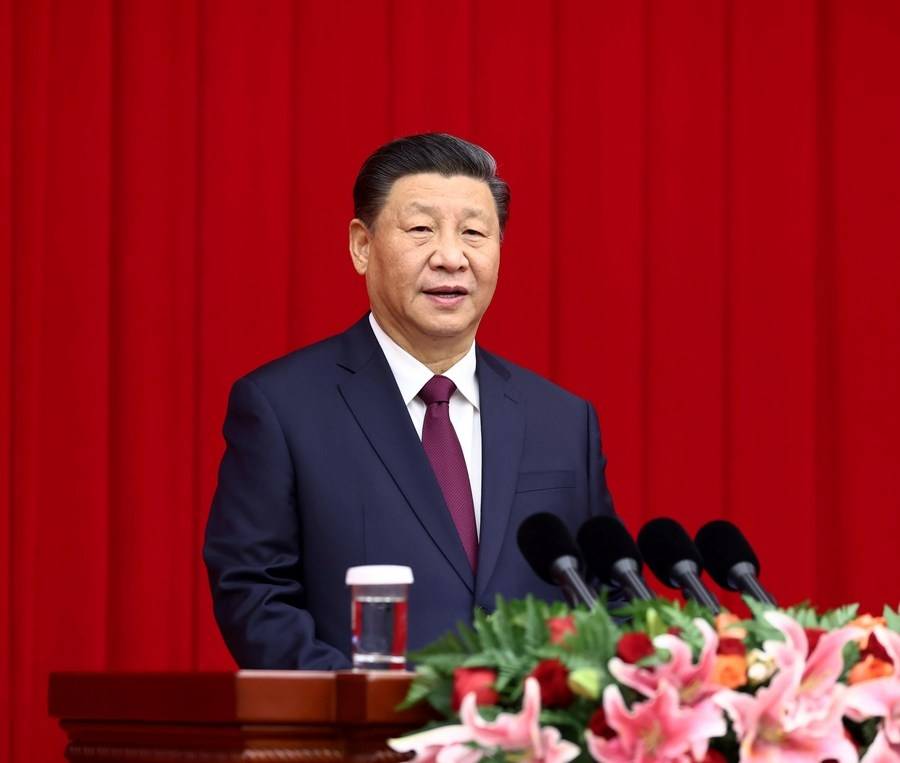China’s actions pose serious risks to privacy and national security, according to a National Counter-Intelligence and Security Center February 1 fact sheet…reports Asian Lite News
Senator for Florida, Marco Rubio has introduced two bills to counter China’s efforts to collect healthcare and genomics data both legally and illegally. For years, Beijing has collected vast amounts of health care data in the United States through illegal methods (for example, cyber hacking), investments in American biotech companies, and partnerships with hospitals and universities to access sensitive information.
China’s actions pose serious risks to privacy and national security, according to a National Counter-Intelligence and Security Center February 1 fact sheet. Rubio on Thursday introduced the Genomics Expenditure and Enhancement of National Security Act and the Genomic Data Security Act.
“There is no reason for US taxpayers to fund Beijing research or for our policies to allow access to US genomic data,” Rubio said in a statement. “It is imperative that Congress take action to address this growing threat to national security and privacy,” the US Senator said. The GENE Act, co-sponsored by Senator John Cornyn, R-Texas, would require the Special Senate Committee on Intelligence and the Senate Committee on Foreign Relations to be included in the briefings of the Committee on Foreign Investments in the United States.
The official release mentioned that the GENE Act would also order The Committee on Foreign Investment in the United States (CFIUS) to rewrite its regulations to require mandatory filing for any deal involving a company working with genetic information, Rubio’s office said. The law would require that the Department of Health and Social Services be consulted on any transaction involving a transaction of DNA data.

Rubio’s second bill seeks to prevent any entity with direct ties to the Chinese government from receiving funding from the National Institutes of Health. Each Clinical Laboratory Improvement Amendments Act certificate would be required to specify whether a company with access to Americans’ health data is directly related to the Chinese Communist government.
The Act also requires that the Department of Health and Human Services (HHS) be consulted on any deal that involves a genetic data transaction — this will increase cross-agency awareness of transactions of concern. Genomic data can also be used to target individuals for intelligence and military operations.
ALSO READ: China’s Indo-Pacific strategy fails in Samoa
The report also said that Americans’ genomic information is particularly valuable to China because of the ethnic diversity of the American population. Varied data sets are more useful in research to identify genetic diseases. The Chinese government last year passed laws severely limiting the ability of foreign companies to access the biological data of its people.

According to the official release, the Genomics Data Security act would help modernize the National Institutes of Health’s (NIH) approach to national security by requiring that the NIH prioritize national security considerations when developing and executing their NIH-Wide Strategic Plan. It would further prohibit any NIH funding from going to support entities with direct ties to the Government of the People’s Republic of China.
The legislation will update licensure requirements to account for national security considerations. The bill would require that every Clinical Laboratory Improvement Amendments Act certificate specify if a company with access to Americans’ health data is directly tied to the Government of the People’s Republic of China. The Genomics Data Security Act will require that the NIH report to the Senate Committee on Health, Education, Labor, and Pensions, the Senate Committee on Foreign Relations, and the Senate Select Committee on Intelligence an annual accounting on the status of ongoing investigations into ties to foreign governments that are not properly disclosed, vetted, and approved with researchers funded by grants from the National Institutes of Health.
The Bill will require an update to the NIH’s Genomic Data Sharing Policy and convene a working group across federal, private, and academic entities to develop and disseminate best practices to ensure that research institutions are better able to navigate and address national security risks with regard to data-sharing.














